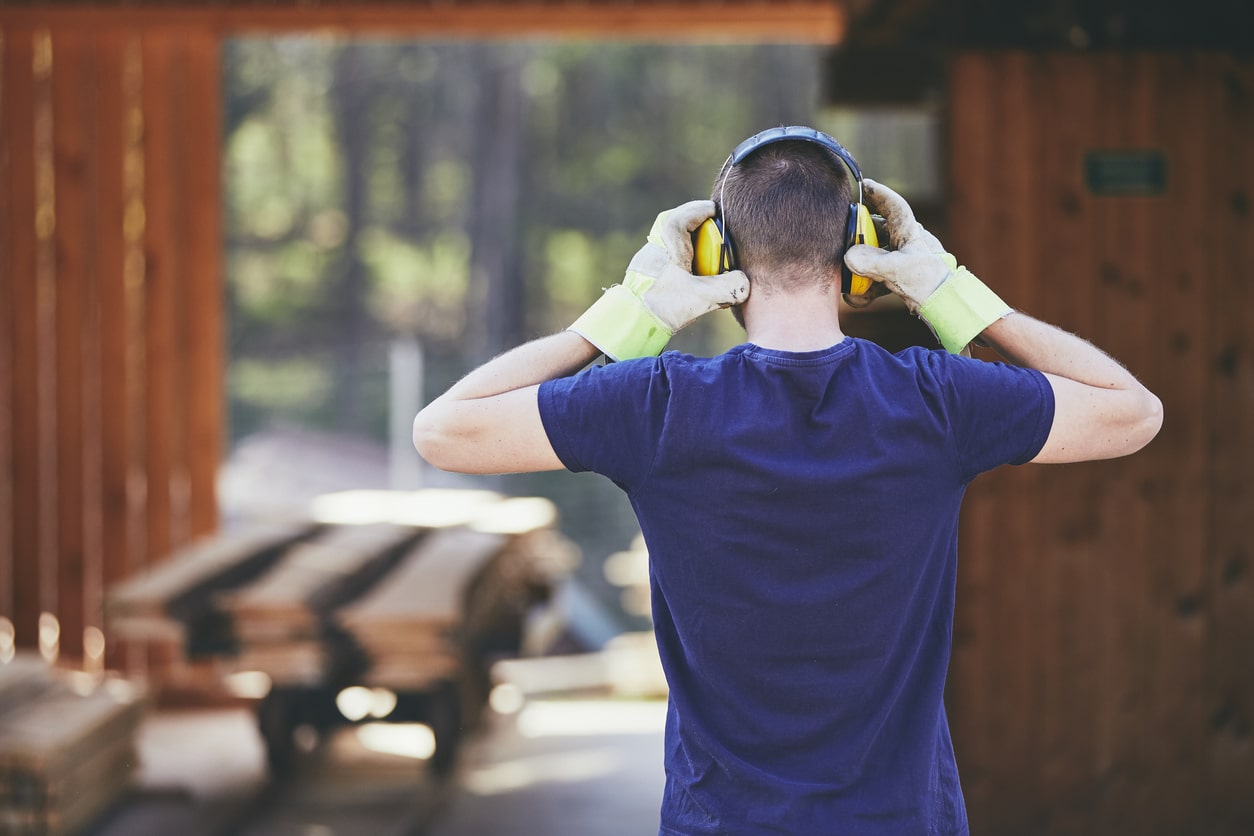Workplace noise, like machinery, hammering or blaring concert speakers, can take a serious toll on your ears. While noise-related hearing loss is permanent, it’s also highly preventable. By understanding the risks and taking action, you can safeguard your hearing, no matter your job.
How Loud is Too Loud?

Your inner ear contains a spiral-shaped, fluid-filled organ called the cochlea. The cochlea is lined with thousands of tiny hair cells that help process sound. When exposed to excessive noise, these cells can get overstressed, leading to damage. You may have noticed muffled hearing for a few hours after a Main Street LIVE concert, indicating that your hair cells are bent. Sometimes, that muffled hearing goes away within a few hours or days. If noise is loud enough to kill these hair cells, the resulting hearing loss is permanent.
According to the Occupational Safety and Health Administration (OSHA), exposure to sounds above 85 decibels (dB) for an eight-hour shift can lead to hearing loss. Here’s a quick guide to noise comparisons:
- 40 dB – Whisper five feet away
- 60 dB – Normal conversation three feet away
- 85 dB – Heavy city traffic
- 100 dB – Construction site
- 120 dB – Operating heavy equipment close-up
5 Ways to Protect Your Hearing at Work
Your hearing health should be a priority. A few things you can do to keep your ears safe on the job include:
1. Use Quieter Equipment
Many modern machines are designed to operate at lower noise levels. When possible, opt for quieter tools and ensure equipment is well-maintained—worn-out machinery is often much louder than necessary.
2. Limit Your Noise Exposure
If your job involves loud noise, take breaks in quieter areas to give your ears time to recover. Rotating shifts or limiting time in high-noise zones can significantly reduce your risk of hearing damage.
3. Wear the Right Hearing Protection
When noise can’t be avoided, the next best step is personal protective equipment (PPE). Options include:
- Foam earplugs – Inexpensive and disposable
- Custom earplugs – Molded to fit your ears
- Silicone earplugs – Reusable and durable
- Earmuffs – Provide full-ear coverage (commonly worn in construction zones)
Choose the best option that offers the highest level of protection for your work environment.
4. Know Your Rights
OSHA regulations require employers to provide hearing protection if workplace noise exceeds safety thresholds. Don’t hesitate to request the necessary PPE when you need it.
5. Get Regular Hearing Tests
Routine hearing screenings can detect early signs of damage, allowing you to take preventive measures before it’s too late. If you work in a noisy environment, schedule regular check-ups with an audiologist.
Take Action Now for Long-Term Hearing Health
By taking a few simple precautions, you can protect your ears and continue to enjoy the sounds you love. Schedule an appointment with Heard It Through The Grapevine Audiology, PC today for more advice and hearing protection solutions.